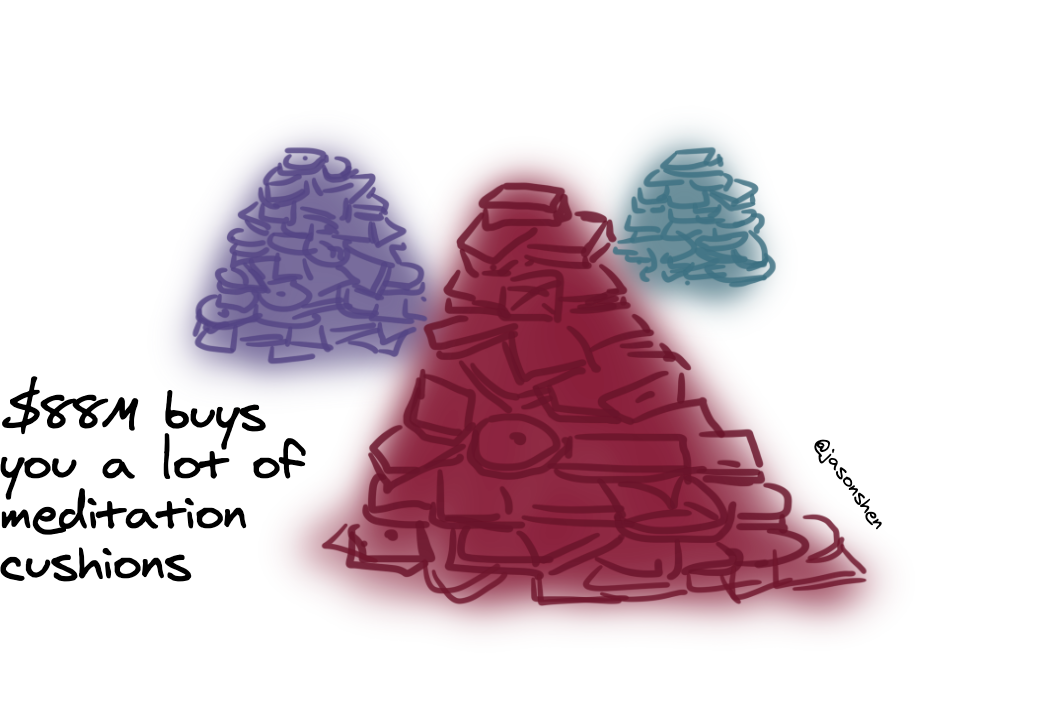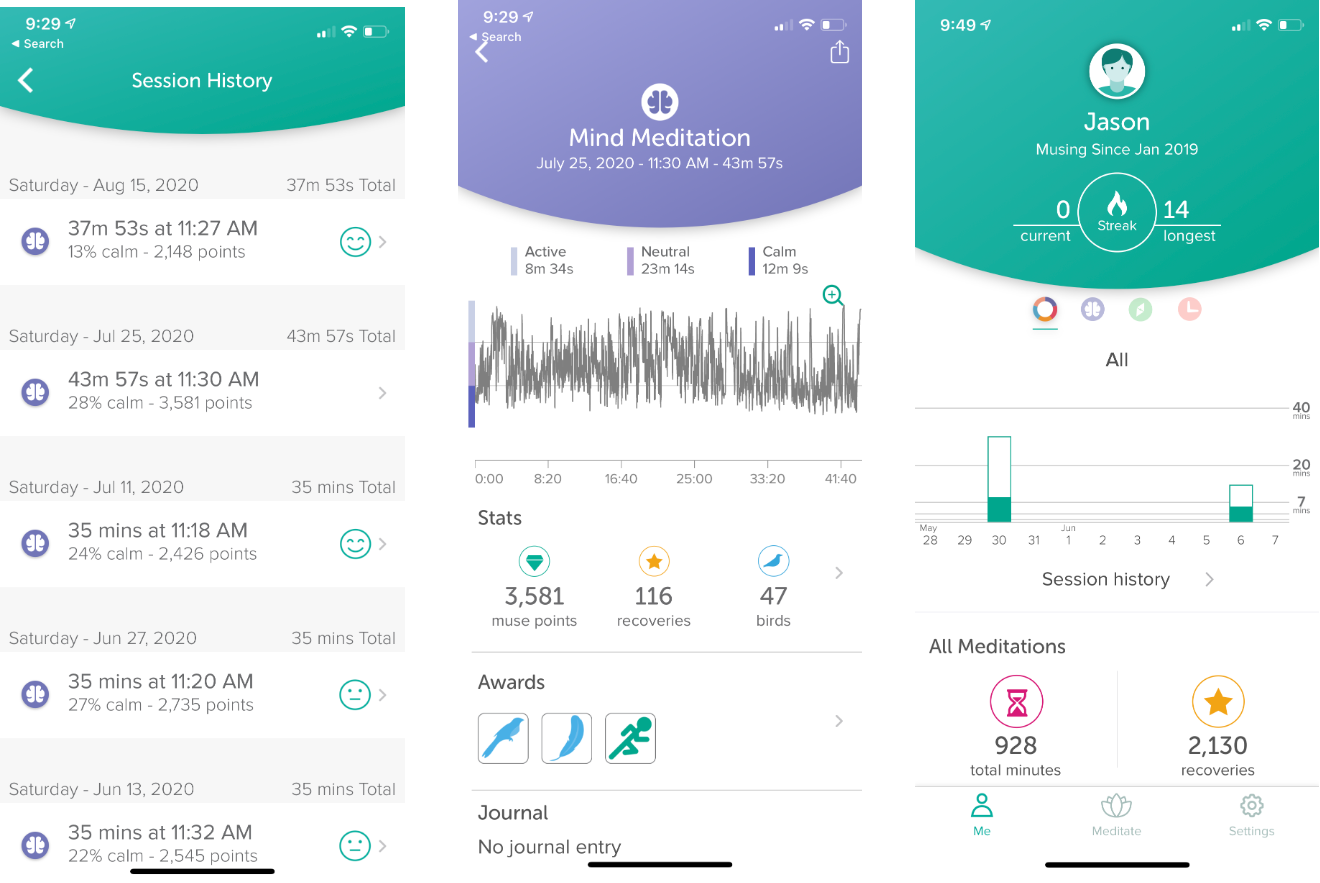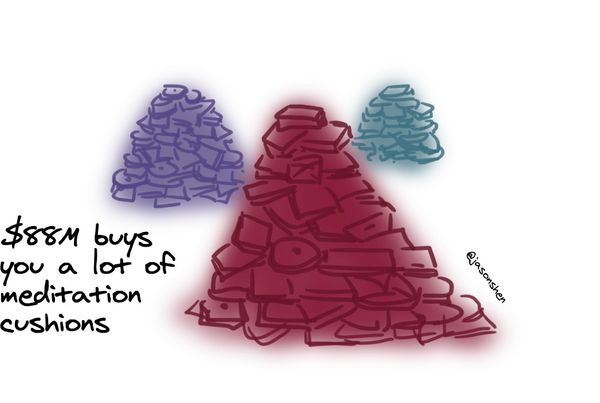Hey friends,
I got a lot of love for my last Making Connections edition on Masterclass and online education (MC#018) so thanks for that. After chatting with some readers, my hunch is that it’s a concentration of thoughts on one topic rather than spread out across a number of them.
So I’m trying something out: the next month of this newsletter will have a similar style. Here’s the content calendar:
- MC#019 (this one) - The Mindfulness Edition: X takes on Calm app, Headspace, and meditation
- MC#020 - The Sweat Edition: X takes on Peleton, Mirror, Aaptiv, and the fitness tech space
- MC#021 - The Docs Edition: X Takes on Notion, Roam, Coda, and knowledge systems
- MC#022 - The Words Edition: X Takes on Readwise, ThreadReader, Next Big Idea Club, and reading
Interested? Get onboard:

My younger sister started watching Avatar the Last Airbender and mentioned it helped her fall asleep more easily at night. Watching one of the most critically acclaimed and popular American anime series is probably a better way to wind down than doomscrolling about how COVID is spiking across college campuses (she’s on one) or the once-in-a-generation wildfires in California.
HBO and Calm app is taking that idea one step further and making a season of episodes that apparently is “bedtime stories for grown-ups”. Sounds a little goofy but I wouldn’t mind being lulled to sleep by the likes of Lucy Liu, Idris Elba, Nicole Kidman, and Keanu Reeves.
Guess it makes sense. What else are you going to do with enough funding to buy 3.5 million meditation cushions?
2. Meanwhile back in March, meditation app rival Headspace offered COVID-19 frontline responders 1200+ hours of free content for one year, then expanded it in May to all unemployed US workers.
I tried the link and the offer has expired which is awkward but inevitable with super generous offers like this. I guess it makes sense, in May there were 36.5 million Americans who had filed for unemployment and as of late August the number was up to 57.4 million. At some point, who doesn’t get the app for free? They still have a sampler called “Weathering the storm” as a peace offering.
3. Let’s talk about actual meditation though. My friend Belinda runs a group called “Potluck and Sit” which at one point was an actual live experience of eating and then meditating (sitting) together. Now it’s on Zoom. I’ve been delinquent lately but when I’ve joined, it’s the only time I can do 45 mins of meditation straight. There’s something about sitting with others, even over video call, that beats meditating alone.
Belinda and Justin, another friend of mine both did (I think) the same week long retreat that used to be in a remote temple somewhere and can now also be done from home (example), instantly allowing so many more people access to the “best” meditation teachers in the world.
4. I’ve been reading Pema Chodron’s When Things Fall Apart, a classic from 1997 that’s still very fresh today (4.5 stars, 2,424 ratings). One of the core points of the book is to not seek some kind of refuge from all the awfulness around you, but to just get comfortable sitting in it.
When things fall apart and we’re on the verge of we know not what, the test of each of us is to stay on that brink and not concretize. The spiritual journey is not about heaven and finally getting to a place that’s really swell.
That’s not to say there aren’t going to be better days and worse days, but that the cycle ultimately repeats indefinitely.
Things falling apart is a kind of testing and also a kind of healing. We think that the point is to pass the test or to overcome the problem, but the truth is that things don’t really get solved. They come together and they fall apart. Then they come together again and fall apart again. It’s just like that. The healing comes from letting there be room for all of this to happen: room for grief, for relief, for misery, for joy.
A lot of the book focuses on self-love and self-compassion, which sound like luxuries and even indulgences in a time like now. But sometimes the cliches hold truth: if you don’t care for yourself, how can you trust yourself to care for others?
If we find ourselves unworkable and give up on ourselves, then we’ll find others unworkable and give up on them. What we hate in ourselves, we’ll hate in others. To the degree that we have compassion for ourselves, we will also have compassion for others.
Ok so what does any of this have to do with meditation? Well, meditation is where all that work happens. Where you train your inner self to embrace your flaws, accept that life will always involve some amount of pain, and lean in to life anyways.
If we are willing through meditation to be mindful not only of what feels comfortable, but also of what pain feels like, if we even aspire to stay awake and open to what we’re feeling, to recognize and acknowledge it as best we can in each moment, then something begins to change.

5. Finally, if you’re a super newbie to meditation and you want some “real technology” beyond simply an app that plays audio for you, consider the Muse headband. I have the original headband and the companies gone on to release 2 more bands but I’m not sold on how much better they are.
All of the headbands use EEG (electroencephalography) sensors that provide neurofeedback - if your mind starts wandering and daydreaming (this happens to me a lot), there’s audio cues (waves, rainforest) that gently bring you back.
This might sound a bit out there but the technology is used in neuroscience papers in Nature to measure cognitive control: Video game training enhances cognitive control in older adults
By playing an adaptive version of NeuroRacer in multitasking training mode, older adults (60 to 85 years old) reduced multitasking costs compared to both an active control group and a no-contact control group, attaining levels beyond those achieved by untrained 20-year-old participants, with gains persisting for 6 months. Furthermore, age-related deficits in neural signatures of cognitive control, as measured with electroencephalography, were remediated by multitasking training
It’s not perfect (you need to calibrate the sensor every time you use it and if you’re overly calm or overly active, it throws off the baseline for the rest of the sit). That said, I’ve done 928 minutes of meditation over the past 20 months and I doubt I would have done as much without it.
Alright, that’s it for this week! What do you think? Is this format working for you? Have you tried meditating with or without any technology products? Let me know!
- Jason

